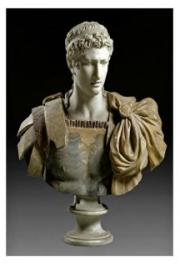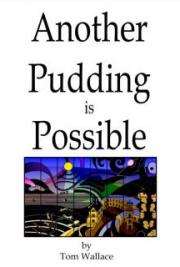Bibliography
AMERICAN NOVELS
ADAMS, HENRY: Democracy (1880). Madeleine Lee goes to Washington to learn about democracy and government. Disillusioned by its state and by Senator Ratcliffe.
ADAMS, SAMUEL: Revelry (1926). Fictionalized version of Harding era’s corruption.
AMSBARRY, MARY ANNE: Caesar’s Angel (1952). Rise and fall of a tainted young politician who tries to deal with criminal element in a state adjacent to Illinois.
BRADBURY, RAY: Fahrenheit 451 (1953). A book-destroying Fireman turns against the post-atomic war regime of a horrific, cultureless, totalitarian United States.
BURNETT, FRANCES HODGSON: Through One Administration (1914). Innocent Bertha Amory’s husband uses her charm to lobby for his schemes in late nineteenth-century Washington.
CHURCHILL, WINSTON: Coniston (1906). Jethro Bass’s rise to control of a New England state through mortgage holdings and political deals in the post-Jacksonian era.
——: Mr. Crewe’s Career (1908). Twenty years after Bass’s death the railroads exercise tighter control. Signs of public opinion being marshalled for action.
COE, CHARLES FRANCIS: Ashes (1952). Contemporary politics and corruption plus murder.
CRAWFORD, F. MARION: An American Politician (1884). Reformer John Harrington’s excursion into politics of the late eighties under Marquis of Queensberry rules.
DEFOREST, JOHN WILLIAM: Honest John Vane (1875). A weak congressman seduced into corruption by a satanic lobbyist and a money-hungry wife during Reconstruction.
——: Playing the Mischief (1876). Attractive Josie Murray gets a fraudulent relief bill passed by a corrupt Congress amidst unsavory Washingtonians.
DOS PASSOS, JOHN: Adventures of a Young Man (1938). Glenn Spotswood’s development into Communist organizer and his death for Trotskyism in the Spanish Civil War.
——: Number One (1943). Huey Long-like Chuck Crawford carries on as Tyler Spotswood goes to jail for him in atonement for his collusion in a corrupt career.
——: The Grand Design (1949). Panoramic novel of New Deal and wartime Washington. Conflicts of personalities, ideals, and politics—national and international.
ELLISON, RALPH: The Invisible Man (1953). A young Negro’s crack-up under prejudice in North and South and disillusionment after whole-souled Communist Work.
FARRELL, JAMES T.: Yet Other Waters (1952). Novelist Bernard Carr learns that the Communists dictate to artists too, then leaves despite twinges and “the treatment.”
FORD, JAMES L.: Hot Corn Ike (1923). Local politics with national implications in two areas of late nineteenth-century New York.
FORD, PAUL LEICESTER: The Honorable Peter Stirling (1894). Poor Man’s Friend to Governor of New York despite vicissitudes as love and virtue triumph.
GALLICO, PAUL: Trial by Terror (1952). Blackmail frees an American conditioned into a robot for a Hungarian spy trial while American diplomats send notes of protest.
GARLAND, HAMLIN: A Spoil of Office (1897). Iowans Bradley Talcott and Ida Wilbur fight for the farmers in and out of Congress in the seventies.
GLASGOW, ELLEN: The Voice of the People (1900). Lincolnesque Governor Nick Burr fights a corrupt organization and meets his death in post-Reconstruction Virginia.
HEMINGWAY, ERNEST: For Whom the Bell Tolls (1943). Conflict of ideologies in Spain as anti-Fascist, non-Communist Robert Jordan dies fighting for what he believes in.
JAMES, HENRY: The Princess Casamassima (1886). Suicide frees displaced Hyacinth Robinson from serving London revolutionaries whose cause he no longer supports.
LANCLEY, ADRIA LOCKE: A Lion Is in the Streets (1945). Another Huey Long novel.
LEWIS, SINCLAIR: It Can’t Happen Here (1936). The horrors of a Fascist America.
LONDON, JACK: The Iron Heel (1908). America under the Fascist Oligarchy seen in retrospect from the 26th century when near-Utopia is well-established.
MCCARTHY, MARY: The Oasis (1949). The founding of a seemingly successful utopian colony which begins to wither from lack of feeling of relevance and conviction.
MAILER, NORMAN: Barbary Shore (1951). A special revolutionary socialism to be saved for “the day” is passed from one to another of a group of weird characters.
MASTERS, EDGAR LEE: Children of the Market Place (1922). Spirited biography and defense of Stephen A. Douglas set against a growing America by a shadowy narrator.
MANCHESTER, WILLIAM: City of Anger (1953). A series of tragedies growing out of the “numbers racket” and corruption in a city that looks and sounds like Baltimore.
PHILLIPS, DAVID GRAHAM: The Plum Tree (1905). Harvey Sayler gains control of a huge lobby and becomes a President-maker before disillusionment sets in.
RUSSELL, WILLIAM: A Wind Is Rising (1950). On the fringes of the political novel. Negro sharecroppers dominated by a hostile socio-political economic system.
SHAW, IRWIN: The Troubled Air (1951). One man crushed between self-appointed judges and unscrupulous Communists in a fight against blacklists and guilt by association.
SHELLABARGER, SAMUEL: Prince of Foxes (1947). Running duel of wits and weapons between Borgia and one of his captains. Melange of romance, swordplay, and politics.
SHIRER, WILLIAM L.: Stranger Come Home (1954). A radio commentator and a Foreign Service career man are ruined by Senator O’Brien and perjured testimony.
SINCLAIR, UPTON: Oil! (1926). The making of a millionaire radical, son of an oil tycoon destroyed by oil scandals in the Harding era he helped to create.
——: Boston (1928). Defense of Sacco and Vanzetti with admixture of fiction.
——: Presidential Agent (1945). Everybody’s confidante, Lanny Budd helps make and interpret modern political history up to and through Munich.
STEINBECK, JOHN: In Dubious Battle (1936). A glimpse of Communist aims and methods in organizing and directing strike violence for Party purposes.
STOWE, HARRIET BEECHER: Uncle Tom’s Cabin (1852). The most effective political instrument in the history of the novel.
TOURGÉE, ALBION W.: A Fool’s Errand (1879). A Northerner tries to buck the tide of a resurgent South during Reconstruction. Acute criticism of the Federal program.
——: Bricks Without Straw (1880). More of the same with greater violence and more analysis of the political structure of the pre-war and post-war South.
WARREN, ROBERT PENN: All the King’s Men (1946). The hectic life and violent death of a Southern dictator with sharp portraits of his effect upon those around him.
WELLER, GEORGE: The Crack in the Column (1949). An American flier is introduced to global politics as Communist Greeks fight the British during World War II.
WHITLOCK, BRAND: The 13th District (1902). The progressive moral and political decline of a mid-western moth fascinated by the illuminated capitol dome.
WILDER, THORNTON: The Ides of March (1948). Caesar’s career through Roman eyes.
ENGLISH NOVELS
CARY, JOYCE: To Be a Pilgrim (1942). Fading Tom Wilcher recreates turn of the century politics for his niece as he tries to perpetuate the old solid values.
——: Prisoner of Grace (1952). Chester Nimmo’s 30-year rise from lay preacher to cabinet minister through determination, astuteness, and a political sixth sense.
CONRAD, JOSEPH: Nostromo (1904). The rise and fall of Costaguanan governments with help from a British mine-owner who ends up owned by his mine.
——: The Secret Agent (1907). Informer Adolf Verloc schemes to blow up the Greenwich Observatory for a foreign power wanting to prod the British into repression.
——: Under Western Eyes (1910). A monarchist Russian is destroyed by chance involvement in revolutionary acts. The work of Red circles in and out of Russia.
DISRAELI, BENJAMIN: Coningsby (1844). Enlightened nobleman at last becomes an M.P.
——: Sybil (1845). A less harried Young Englander does the same. Panorama of England c. 1837-1852 with great popular uprisings emphasizing national discontent.
——: Tancred (1847). The hero recoils from politics, finding spiritual and political insights amidst comic opera imbroglios in the deserts of the Holy Land.
ELIOT, GEORGE: Felix Holt, the Radical (1866). Provincial politics in the 1830s. Gallery of types from the extreme radical to granite conservative. Complicated plot.
FORSTER, E. M.: A Passage to India (1924). Personal tragedies emphasize national tragedy of divided and unhappy India governed by inflexible and unfeeling Britain.
HUXLEY, ALDOUS: Brave New World (1932). A totalitarian world of the future in which stability has been achieved through destruction of freedom and the soul.
MAUGHAM, SOMERSET: Then and Now (1946). Niccolo Machiavelli learns more about his profession negotiating with Borgia. Time out for dalliance and teaching a novice.
MEREDITH, GEORGE: Beauchamp’s Career (1876). A fiery young radical’s political excursions end in family disruption, failure, and death. More portraits of types.
ORWELL, GEORGE: 1984 (1949). Chilling world of the future in which the regime can control past and present, literally make two and two equal five for its slaves.
SPRING, HOWARD: Fame Is the Spur (1940). Over sixty years of British politics with emphasis on the rise of the Labor Party and the kinds of men who made it.
TROLLOPE, ANTHONY: Phineas Finn (1869). The education of a young Liberal in Commons. Disraeli v. Gladstone under other names. Phineas’s conscience politically expensive.
——: Phineas Redux (1874). More of the same with a murder trial added.
——: The Prime Minister (1876). The three-year tenure of the Duke of Omnium’s coalition. The Duke, like Phineas, now infected by the virus of disillusionment.
WARD, MRS. HUMPHREY: Marcella (1894). Liberals v. Conservatives as the scales drop from Venturist Marcella’s eyes leading her from bad Wharton to good Raeburn.
WELLS, H. G.: The New Machiavelli (1910). An illicit affair destroys Dick Remington as Parnell had been destroyed. Early 20th century political currents.
ITALIAN NOVELS
MORAVIA, ALBERTO: The Conformist (1951). Marcello Clerici’s attempt to escape abnormality leads him to a career in the Fascist secret police and political murder.
——: The Fancy Dress Party (1952). Political and amorous intrigue involving a South American dictator, his secret police, and revolutionaries. Ends in murder.
SILONE, IGNAZIO: Fontamara (1934). Growing political awareness and resistance to Fascism destroy a poor village. Peasants v. landowners and the regime. An appeal.
——: Bread and Wine (1937). A revolutionary torn between Communism and religion. Pietro Spina seeks the best of the two while underground from the Fascists.
——: A Handful of Blackberries (1953). Rocco de Donatis’ post-war break with Communism, his survival of its attack, and his re-entry into pro-peasant activity.
TADDEI, EZIO: The Pine Tree and the Mole (1945). The top and bottom strata of Livorno society as Fascism uses the underworld to aid in its rise to power.
FRENCH NOVELS
MALRAUX, ANDRÉ: Man’s Fate (1934). Attempted Communist coup in Shanghai in 1927.
SARTRE, JEAN-PAUL: The Reprieve (1945). Many strata of French society during the ten weeks ending with Munich agreement. Impact on them and other Europeans.
STENDHAL, MARIE-HENRI: The Charterhouse of Parma (1839). Careers of Fabrizio del Dongo, his aunt and her lover, Minister to Prince of Parma in and after Napoleonic era.
GERMAN NOVELS
KAUFMAN, RICHARD: Heaven Pays No Dividends (1951). The rise and fall of Hitler’s Reich seen through the eyes of a German reluctantly drawn into Nazism.
KOESTLER, ARTHUR: Darkness at Noon (1941). Superb account of the destruction of one of the Bolshevik old guard, with penetrating analysis of his life and conflicts.
——: The Age of Longing (1951). Disillusioned Europeans under Russia’s threatening shadow await atomic destruction through conflict of East and West.
RUSSIAN NOVELS
DOSTOYEVSKY, FYODOR: The Possessed (1872). Deranged revolutionaries bring destruction and death to a provincial city in a book meant to show the danger they represent.
TURGENEV, IVAN: Fathers and Sons (1862). Two generations separated by ideas and ideologies. Nihilist prototype dies unyielding as his pupil accepts the old order.
SOUTH AFRICAN NOVELS
PATON, ALAN: Cry, The Beloved Country (1948). A poignant double tragedy arising out of political, economic, and social repression of the Black population by Whites.
——: Too Late the Phalarope (1953). The personal tragedy of a hero destroyed by lack of understanding and repressive racial legislation for white supremacy.
SUGGESTED READING
CROSSMAN, RICHARD (ed.): The God That Failed (1950). Writers Arthur Koestler, Ignazio Silone, Richard Wright, André Gide, Louis Fischer, and Stephen Spender discuss the events in their lives which led them to Communism and the factors which caused them to break with it. An extremely valuable book.







